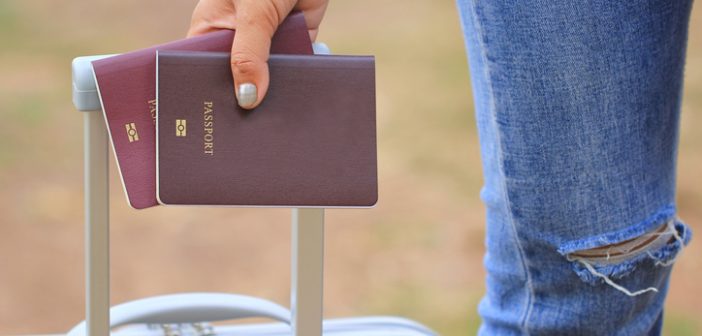What age do children have to pay for a plane ticket? Do you need to check-in a stroller? Can I claim compensation for delays or cancellations for them? reclamador.es, the online legal services company clarifies the most frequent (and unusual) questions asked by people taking a flight. There are still a few long weekends and bank holidays that many people can take advantage of to make a trip by plane before the Christmas holidays in December.
- Travelling by plane with babies
Babies are those under two years of age. Each airline has its own regulations, but the majority of them act in a similar manner for flights when you’re travelling with a baby.
1.a. When can I fly with my baby on a plane?
As a general rule, babies can fly at any age. However, according to medical recommendations, it’s advisable to wait until they are at least two months old before taking them on a plane.
1.b. Do I have to buy a ticket for my baby?
Generally, you don’t need to buy a ticket for a baby. But, the flight ticket must be registered in their name. In these cases, what the airlines do is charge the adult who is travelling with the baby 10% of the flight price, although this surcharge may vary depending on the airline. This is why a baby doesn’t have right to a seat and must be seated on the lap of the person responsible for travelling with it, who must always be older than 18 years of age.
You should also bear in mind that in these cases babies are not considered as passengers and will not be protected by the purposes of Regulation 261, meaning they won’t have the right to any financial compensation if the flight is cancelled or delayed by more than 3 hours.
1.c. Can my baby carry luggage? What?
Passengers travelling with babies can bring an extra bag as carry-on luggage.
You’re also allowed to use the child’s car seat or stroller. However, the car seat or stroller, which must be foldable, can only be used up to the moment of boarding the flight. When the time comes, it must be handed over to the airline personnel, and they will return it to you at the aircraft door at your destination.
Virtually all airlines allow the transport of such items free of charge, but it’s advisable to check with the airline to avoid last-minute surprises.
1.d Flying with babies and the necessary documentation
The documentation required when flying with a baby varies from country to country. When it’s a domestic flight, without leaving Spain, it’s enough to present the family record book that the child is registered in or the state registration of the child’s birth. Nevertheless, it’s recommendable to also bring the child’s ID card.
For travelling outside of Spain, babies need their national ID card for flights within the Schengen area and their passport (and visa if the destination country requires it) for international and non-Schengen European flights.
- Travelling by plane with children older than 2 years of age
Children older than two years of age must have a flight ticket in their name. This gives them the right to have a seat and carry-on luggage. This way, they will be protected by EU Regulation 261 and can claim compensation if the flight is cancelled or delayed by more than 3 hours.
Depending on the destination, the child can fly by presenting his or her ticket and national ID card or passport. Children younger than 14 years of age can also fly with only the family record book on domestic flights in Spain.
- Change the name on the ticket
Tickets are always nominative. This means the ticket is issued in the name of a specific person. If you want to change the name on the ticket, you should check the conditions established by each airline when purchasing the ticket. You can change the name on a flight ticket, but the airline will generally charge an admin fee to do so. In fact, it’s not illegal for airlines to either prevent a change of name or to charge a fee for the change.
- Is it possible to fly with an expired ID card?
Domestic flights:
The following documentation is required to travel on domestic flights (within Spain):
- National ID card or passport not necessarily valid.
- Driving licence issued in Spain.
According to AENA, the airline company is responsible for requesting ID when checking-in, getting the boarding pass and at the time of boarding. Although the National Safety Plan (PNS) classifies driving licences issued in Spain as valid ID for travelling on domestic flights, some airlines don’t accept them, so reclamador.es advises people to contact the airline and check the company’s internal rules regarding valid identification.
Foreigners can travel on domestic flights with their residence permit or their EU scheme national ID card.
- How much time must pass before you can claim for a delay? How do I know if it’s a delay or a cancellation?
Passengers have the right to claim compensation if the flight is delayed by more than 3 hours. In this case, depending on the distance, they’re entitled to compensation of between 250 and 600 euros.
You need to look at the flight number to differentiate between a delay or a cancellation. If the number changes, it’s a cancellation. If passengers have a boarding card and the airline company issues them another one, this is also a cancellation. But, if passengers fly with the same boarding card they had from the beginning, then it’s considered a delay.
- Time limit for checking in: How is it measured? What happens if there’s a queue?
The time limit for checking in is not pre-established in any regulation. What is pre-established is the time limit for checking in luggage and getting a boarding card, which is 45 minutes. This can be extended if the company establishes it in its conditions of carriage. For example, on flights to the US or Israel, passengers must be at the airport up to 2 hours beforehand for the security check.






